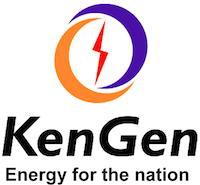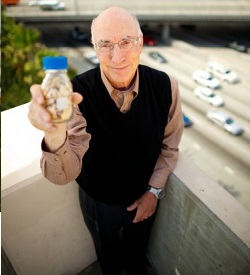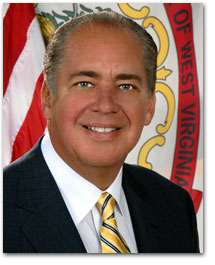 Debi Durham, director of the Iowa Economic Development Authority, is a featured speaker at the March 13th Business Breakfast hosted by EcoEngineers. The event is taking place Friday March 13, 2015 from 7:30 am to 9:30 am CDT in Des Moines, IA. Durham will speak about the renewable biochemical tax credit, the angel investor tax credit, and the importance of diversification and infrastructure investments in Iowa’s bio-science and renewable energy clusters.
Debi Durham, director of the Iowa Economic Development Authority, is a featured speaker at the March 13th Business Breakfast hosted by EcoEngineers. The event is taking place Friday March 13, 2015 from 7:30 am to 9:30 am CDT in Des Moines, IA. Durham will speak about the renewable biochemical tax credit, the angel investor tax credit, and the importance of diversification and infrastructure investments in Iowa’s bio-science and renewable energy clusters.- Ocean Energy Europe’s Board of Directors has elected Rob Stevenson as its new President. Stevenson is Vice-President of Alstom’s Ocean Energy Business. His appointment follows the election of six new Directors on Ocean Energy Europe’s Board.
- Several California schools have contracted with Green Charge Networks under a Power Efficiency Agreement for the installation of over 1,500 kWhs of intelligent energy storage capacity to be used to reduce the ongoing costs of demand charges on their electricity bill. These schools and colleges can expect to save up to 50 percent off their demand charges. As an added benefit, Green Charge has coupled electric vehicle charging stations with each of these systems to mitigate increased demand charges while promoting the use of electric vehicles with students, faculty, and staff.
- Registration is still open for the India-Sri Lanka Renewable Energy Growth Forum taking place on March 11, 2015 at the Galadari Hotel, Columbo. The Forum aims to accelerate growth of the renewable energy sector in Sri Lanka by offering suitable development opportunities to Indian businesses in this industry. Leading industry experts, product manufacturers, system integrators will throw light on the prospects for both countries to work together in this area, for end-use applications and execute projects to achieve new standards and benchmarks of business synergy.
KenGen Commissions Geothermal Plant in Kenya
Kenya continues to rise as one of the leading countries tapping into geothermal energy. The Kenya Electricity Generating Company (KenGen) has inaugurated the 140 MW Oklaria 1 power plant, the last phase of the 280 MW geothermal facility. KenGen believes the additional electricity produced will help further stabilize volatile electricity costs throughout the country.
H.E Preside nt Paul Kagame of the Republic of Rwanda presided over the geothermal plant commissioning event accompanied by his host H.E President Kenyatta.
nt Paul Kagame of the Republic of Rwanda presided over the geothermal plant commissioning event accompanied by his host H.E President Kenyatta.
According to KenGen, who says the plant has been supplying power to the national grid since December 2014, the Fuel Cost Component (FCC), the single biggest item on the bills, fell to to a low of KShs/kWh 2.51 in February 2015. This represents a 65 percent drop in the FCC. As a result, it has led to a decline in the overall cost of power to consumers. The addition of geothermal power has also helped to mitigate dependence on hydro power; in recent months, Kenya has had no rainfall and as a result, there has been below average inflow of water into hydro dams.
“KenGen is proud to be on the lead in moving the country towards self sufficiency of reliable and affordable and renewable source of energy, which is also available almost 24/7,” said Managing Director and CEO Eng. Albert Mugo.
Today, KenGen is adding 1575 MW of power geothermal power to the national grid, surpassing hydro for the fourth month in a row. At U.S. 7.2 cents per kilowatt hour, geothermal energy is among the cheapest renewable sources of electricity in the country and the world.
“The country has not experienced power rationing despite low water levels in the hydro generation dams on the Tana Cascade. “This is because the 280 MW project has helped to bridge the power deficit,” concluded Mugo.
IRFA: Iowa ‘Gas Tax’ to Boost Biodiesel
 The Iowa Renewable Fuels Association (IRFA) has joined the Iowa Biodiesel Board in welcoming a state gas tax that is awaiting the governor’s signature that will create a 3-cent per gallon differential tax rate for 11 percent biodiesel and higher blends. The IRFA says the measure would boost the availability and sales of cleaner-burning, locally-produced biodiesel.
The Iowa Renewable Fuels Association (IRFA) has joined the Iowa Biodiesel Board in welcoming a state gas tax that is awaiting the governor’s signature that will create a 3-cent per gallon differential tax rate for 11 percent biodiesel and higher blends. The IRFA says the measure would boost the availability and sales of cleaner-burning, locally-produced biodiesel.
Under the legislation, diesel fuel will be taxed at a rate of 32.5 cents per gallon. However, if diesel fuel is blended with 11 percent or more of biodiesel, the state excise tax is reduced to only 29.5 cents per gallon. The 3-cent per gallon differential for B11 and higher blends will go into effect on July 1, 2015.
“The biodiesel community thanks the Iowa Legislature for its commitment to increasing the use and availability of higher biodiesel blends,” stated Iowa Renewable Fuels Association (IRFA) Policy Director Grant Menke. “The 3-cent differential for blends containing at least 11 percent biodiesel will be a useful tool to build upon the progress we’ve made in cleaning up our air and supporting our economy through the use of homegrown Iowa biodiesel. The B11 differential further demonstrates Iowa’s policy leadership in expanding market access and consumer choice for renewable fuels.”
“With no end in sight on the federal policy uncertainty for biodiesel, I am grateful the Iowa Legislature took this opportunity to drive sales of higher biodiesel blends,” stated IRFA Vice President and Western Dubuque Biodiesel General Manager Tom Brooks. “This 3-cent differential for B11 and higher blends represents another step forward for the economic, environmental and energy security benefits that come along with a strong Iowa biodiesel community.”
Iowa produced 227 million gallons of biodiesel in 2014, about 16 percent of total U.S. biodiesel production for the year.
Global Energy Market Outlook at #NEC15
 Fluctuations in the world oil market do impact ethanol energy demand and, in turn, production. During the National Ethanol Conference, John Kingston with McGraw Hill Financial Global Institute broke down how the petroleum markets have reacted and what that has meant for the ethanol industry.
Fluctuations in the world oil market do impact ethanol energy demand and, in turn, production. During the National Ethanol Conference, John Kingston with McGraw Hill Financial Global Institute broke down how the petroleum markets have reacted and what that has meant for the ethanol industry.
Kingston explained a variety of reports, such as the OPEC call and U.S. Energy Information Administration (EIA) information that has shown that U.S. oil production would drop, and now that is indeed being displayed not just on the theoretical level. That drop in oil production is also in response to an overall overage in the petroleum markets, which has pushed oil off its $100/barrel status down to nearly half of that now… with possibilities that it could drop to the $20s/barrel – an unthinkable drop from what was considered a “permanent high.” Part of what helped push those oil prices down has been a drop in gasoline demand. When oil is very cheap, it can make it much more difficult for ethanol producers to stay cost competitive. Adding in less gasoline for ethanol to be blended into, and those oil fluctuations are having an impact on ethanol. Kingston added that the government regulations on ethanol are adding to the issue.
“When you bring a government into a market, it tends not to operate as it would have otherwise. That volatility in the market [that has trickled down to ethanol producers] is quite substantial,” he said. “Ethanol will always be a a little more volatile than some of these petroleum-based products.”
Kingston said while the energy industries are creative in finding ways to stay profitable, they’ll just have to do it at much lower prices.
Listen to all of Kingston’s remarks here: John Kingston, McGraw Hill Financial Global Institute
New Treatment to Cut Biofuel Costs by 30% or More
 A new pretreatment could cut the costs of biofuels by 30 percent or more. This news release from the University of California, Riverside says researchers at the school have invented a novel pretreatment technology that could cut those production costs by dramatically reducing the amount of enzymes needed to breakdown the raw materials that form biofuels.
A new pretreatment could cut the costs of biofuels by 30 percent or more. This news release from the University of California, Riverside says researchers at the school have invented a novel pretreatment technology that could cut those production costs by dramatically reducing the amount of enzymes needed to breakdown the raw materials that form biofuels.
As partners in the BioEnergy Science Center (BESC), the team from the Bourns College of Engineering Department of Chemical and Environmental Engineering and Center for Environmental Research and Technology (CE-CERT) have shown that this new operation called Co-solvent Enhanced Lignocellulosic Fractionation (CELF) could eliminate about 90 percent of the enzymes needed for biological conversion of lignocellulosic biomass to fuels compared to prior practice. This development could mean reducing enzyme costs from about $1 per gallon of ethanol to about 10 cents or less.
The BioEnergy Science Center is a U.S. Department of Energy Bioenergy Research Center focused on enhancing science and technology to reduce the cost of biomass conversion through support by the Office of Biological and Environmental Research in the Department of Energy Office of Science..
“As recent months have shown, petroleum prices are inherently unstable and will likely return to high prices soon as expensive sources are taken off line,” said Professor Charles Wyman, the Ford Motor Company Chair in Environmental Engineering at UC Riverside. “We have created a transformative technology that has the potential to make biofuels an economic sustainable alternative to petroleum-based fuels.”
Wyman’s findings were outlined in a just published paper, “Co-solvent Pretreatment Reduces Costly Enzyme Requirements for High Sugar and Ethanol Yields from Lignocellulosic Biomass,” in the journal ChemSusChem.
W. Virginia Gov – Don’t Put Solar in the Dark
Solar supporters from across the country are calling on West Virginia Governor Earl Ray Tomblin to veto House Bill 2201 – a bill that could jeopardize the future of rooftop solar in the state by rewriting net metering policies.
Solar advocates from Tell Utilities Solar Won’t Be Killed (TUSK) claim that utilities, such as American Elec tric Power (AEP) and FirstEnergy, are deceiving legislators about the language in HB 2201. Should the Gov sign the bill, TUSK said he would “saddle” hundreds of West Virginia families, churches and businesses, that have invested private funds in rooftop solar with new fees. This is happening, said TUSK, at the same time as two utilities – Mon Power and Potomac Edison – are raising rates.
tric Power (AEP) and FirstEnergy, are deceiving legislators about the language in HB 2201. Should the Gov sign the bill, TUSK said he would “saddle” hundreds of West Virginia families, churches and businesses, that have invested private funds in rooftop solar with new fees. This is happening, said TUSK, at the same time as two utilities – Mon Power and Potomac Edison – are raising rates.
“The utilities are fighting tooth and nail to eliminate competition while also raising rates for their customers,” said Barry Goldwater Jr., spokesperson for TUSK. “When will it be enough? These monopolies are hurting consumers and West Virginia’s economy by increasing rates and pushing new fees through HB 2201.”
 The net metering fight has been underway for some time and TUSK said that to date, hundreds of consumers have written to their legislators in support of rooftop solar. TUSK said this particular “attack” uses deceptive language in HB 2201 to impose punitive fees – retroactively and going forward – on West Virginians. The organizations said thousands of West Virginia voters continue to stand strong for choice and competition in the energy market and continue to flood the Governor’s office with letters asking him to preserve net metering and energy choice..
The net metering fight has been underway for some time and TUSK said that to date, hundreds of consumers have written to their legislators in support of rooftop solar. TUSK said this particular “attack” uses deceptive language in HB 2201 to impose punitive fees – retroactively and going forward – on West Virginians. The organizations said thousands of West Virginia voters continue to stand strong for choice and competition in the energy market and continue to flood the Governor’s office with letters asking him to preserve net metering and energy choice..
“SEIA doesn’t object to investigating the costs and benefits of net energy metering, but we do object to the assumption that any potential cost shift from a net metering customer to other customers is unjustified,” adds Rhone Resch, Solar Energy Industries Association (SEIA) president and CEO, who notes that the legislation needs to be revised before becoming law.Read More
Advanced Ethanol Progress and Concerns
 While it’s making progress, there are still plenty of questions and concerns regarding advanced ethanol production. During the the 20th National Ethanol Conference, a panel of advanced ethanol producers talked about the challenges and opportunities facing their industry.
While it’s making progress, there are still plenty of questions and concerns regarding advanced ethanol production. During the the 20th National Ethanol Conference, a panel of advanced ethanol producers talked about the challenges and opportunities facing their industry.
Advanced Ethanol Council Executive Director Brooke Coleman moderated the panel which included Bill Feehery of DuPont Industrial Biosciences (pictured at the podium), Adam Monroe of Novozymes, Paula Corollo with Beta Renewables, and Abengoa’s Chris Standlee. Coleman said while there are naysayers, who try to talk down the cellulosic industry, saying it’s not going fast enough or isn’t successful enough, he sees incredible progress over the last five years for the industry. But it’s not going to get easier.
“This is a crossroads and the part where it gets hard. This is the part where we diversify feedstock, introduce new technologies, and the [Environmental Protection Agency] has to look down and decide if we’re going to change the fuel markets at a fundamental level or just change them to where the oil industry is comfortable,” Coleman said.
Feehery’s presentation focused on the progress cellulosic ethanol has made, calling the recent advancements that are delivering a cleaner, more sustainable transportation fuel that’s also invigorating rural America’s economy. “It’s a victory of science, industry policy, and plain good, old-fashioned hard work, and it’s an accomplishment we all share together.”
Looking ahead, Feehery said it’s also important to look back at what has been successful to see the path forward. He pointed to efficiencies and technologies, such as enzymes, that are making cellulosic more affordable and more commercially viable. He’s also excited by how celluslosic ethanol is being embraced by American companies not just within the fuels markets, such as Procter & Gamble, which is using cellulosic ethanol in its formulation for Tide laundry detergent. He concluded that these technologies and adoptions by industry are key drivers in how cellulosic ethanol will grow in the years to come.
“What we see is the beginning of a bioeconomy in action,” Feehery said.
Listen to Feehery’s presentation before the group here: NEC 15 Advanced Ethanol Panel
BioEnergy Bytes
 Registration is open for the 10th annual Ethanol 2015: Emerging Issues Forum taking place April 16-17, 2015 in Omaha, Nebraska at the Magnolia Hotel. Confirmed speakers include Jessica Hoffmann, RPMG; Dr. Kurt Rosentrater, Distillers Grain Technology Council; Ernie Shea, 25x’25 and more.
Registration is open for the 10th annual Ethanol 2015: Emerging Issues Forum taking place April 16-17, 2015 in Omaha, Nebraska at the Magnolia Hotel. Confirmed speakers include Jessica Hoffmann, RPMG; Dr. Kurt Rosentrater, Distillers Grain Technology Council; Ernie Shea, 25x’25 and more.- Florida Power & Light Company (FPL) and Daytona International Speedway have announced plans to install commercial-scale distributed solar power at the “World Center of Racing”. The plan comprises the installation of more than 5,000 solar panels on multiple canopy-like structures that will offer areas of shade for race fans while generating zero-emissions energy. The solar panels will be located outside the frontstretch, in the Sprint FANZONE and in one of the Speedway’s parking lots.
- Pattern Energy Group Inc. has announced that its parent company, Pattern Development has signed a joint venture agreement with CEMEX Energia, a subsidiary of CEMEX, S.A.B. de C.V. The CEMEX Energia/Pattern Development JV will jointly develop renewable energy projects throughout Mexico.
- RGS Energy has announced that it commenced a public offering of up to $3.5 million units consisting of its Class A common stock and Series A, B, C, D and E common stock warrants. WestPark Capital, Inc. served as exclusive placement agent in the offering on a “best efforts” basis.
Many Still in Quandary Over Crop Insurance
 Our latest ZimmPoll asked the question, “Which crop insurance option will you be choosing?”
Our latest ZimmPoll asked the question, “Which crop insurance option will you be choosing?”
It is evident that many farmers across the country still do not understand the crop insurance options offered in our recent farm bill and deciding has become a chore. However, the majority of those who took our poll and have made a decision have selected agriculture risk coverage or ARC.
Here are the poll results:
- PLC – 15%
- ARC – 47%
- Still unsure – 38%
Our new ZimmPoll is now live and asks the question, What do you think of proposed government control over the internet?
We have been hearing the term net neutrality or open internet in the news lately. The FCC says open internet ensures that every American has access to open and robust high-speed internet service. As we understand it, the FCC’s guidelines for this are being challenged by a number of organizations. So, we want to know what you think about a proposed government control over our internet.
Ethanol Helps Create Jobs and More Jobs
Among the benefits of ethanol production in 2014 according to the study by ABF Economics:
• $52.7 billion to America’s gross domestic product
• 83,949 direct jobs
• 295,265 indirect and induced jobs
• $10.3 billion in federal, state and local taxes
• Displaced 515 million barrels of oil, the equivalent of $49 billion
John Urbanchuk, author of the study and managing partner of ABF Economics, concluded his analysis by noting, “The ethanol industry continues to make a significant contribution to the economy in terms of job creation, generation of tax revenue, and displacement of imported crude oil and petroleum products. The importance of the ethanol industry to agriculture and rural economies is particularly notable. Continued growth and expansion of the ethanol industry through new technologies and feedstocks will enhance the industry’s position as the original creator of green jobs, and will enable America to make further strides toward energy independence.”
The full study, prepared on behalf of the Renewable Fuels Association, can be found here.


